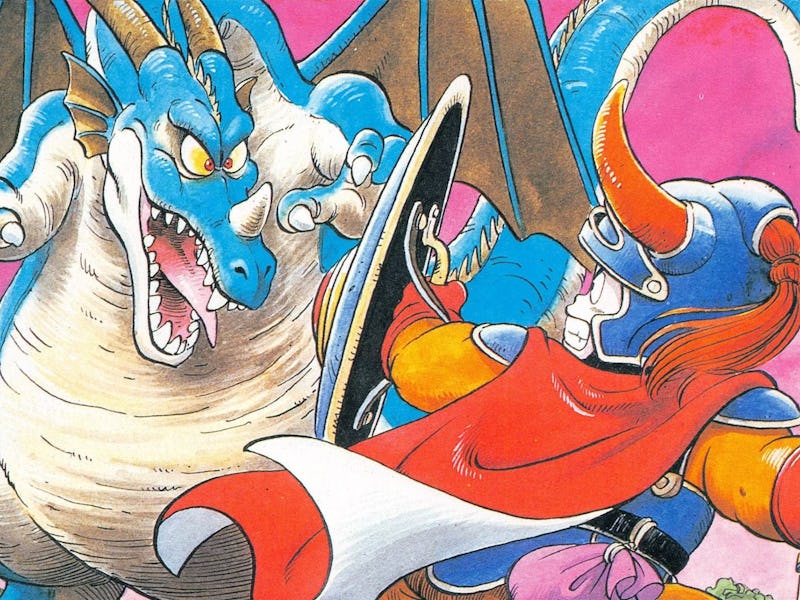35 Years Ago, One RPG Changed the Course of Video Game History
A true classic.

RPGs have been some of the most popular video games for decades. From Final Fantasy to Baldur’s Gate, players love being immersed in fantastical worlds where they can be the hero. It might sound simple, but that idea is a core tenet of what makes video games so special. But so many of those experiences simply wouldn’t exist without one pivotal game — Dragon Quest. While it’s far from the first RPG, Dragon Quest was a seminal game that completely redefined the genre at large, and kickstarted console RPGs as we know them. Video games today quite simply wouldn’t be the same without it.
Dragon Quest first released on the Nintendo Entertainment System in 1986 in Japan. It wouldn’t make its way to North America until 1989, though, and would sport the new name Dragon Warrior, in order to avoid a trademark dispute. In those three years, Dragon Quest caught on like wildfire in Japan, and while it didn’t have quite the same impact in the West, it absolutely set the foundation for decades of RPGs, a foundation that’s still in use to this day.
Dragon Quest’s world might look simplistic now, but in 1989 it felt like an incredible endless fantasy realm.
Dragon Quest was really the first console RPG to translate the complexity of personal computer games, like Ultima, to a home system. Previous attempts, even The Legend of Zelda, had abstracted a lot of those core RPG elements, like stats and levels. But Dragon Quest’s brilliance is that it packed in all those complex RPG elements that fans loved, while making it more streamlined and approachable for players who might find that complexity off-putting. This is essentially the game that took all the disparate elements of other RPGs and put them into one whole package.
Everything in Dragon Quest contributes to a grand feeling of adventure, but more importantly, the player having ownership over that adventure. You have a party of specialized customizable characters, a massive open world that you can explore in any direction, a leveling system all about increasing stats, and a high-stakes story about saving a princess. On that last point, Dragon Quest established saving the princess as an RPG staple but also set a precedent for subverting that story, only telling players the true threat after they’ve achieved that initial goal.
Playing Dragon Quest wasn’t a 100-hour time commitment, you didn’t need to learn complex rules of combat, and you didn’t have to be familiar with Dungeons & Dragons in any way. Dragon Quest was the perfect pick-up-and-play RPG — something that you could put a few hours into occasionally, or sit with for 30 hours straight.
For over three decades Dragon Quest has found inventive new ways to riff on its own formula. Even DQXI feels like the ultimate realization of what the first game set out to achieve.
That’s what made the game so foundational, it made RPGs approachable and undaunting. The game was solely focused on creating a satisfying player experience, and it did it impeccably well.
All of Dragon Quest’s elements became foundational to the RPG genre as a whole. A few years later, Final Fantasy would riff on the formula by implementing a job system, Baldur’s Gate similarly introduced unique party members and a massive open world to explore, and Chrono Trigger practically uses the exact same formula but with a time travel twist. You can even look at the basic presentation of Dragon Quest, a top-down adventure with battles that pop out a new screen, and see how it inspired the likes of Earthbound and Pokémon.
Even the Dragon Quest series itself has continued the same formula and iterated on it, with Dragon Quest XI having actual story ties to the first game, on top of embracing the same ideology of a mythical hero and grand immersive world. For 35 years, Dragon Quest has, somehow, managed to keep iterating on that winning formula and keep things interesting, even as other games it inspired fall by the wayside. It’s one of the few cases where it’s not hyperbolic to say video games as we know them wouldn’t exist without Dragon Quest.